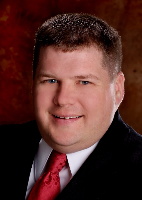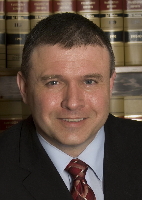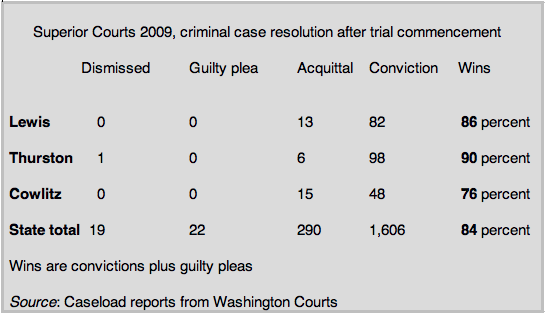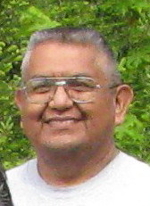By Sharyn L. Decker
Lewis County Sirens news reporter
In mid-August, I wrote about the race for Lewis County prosecutor, primarily focusing on the money raised and spent in the race along with what supporters of Michael Golden and Jonathan Meyer said about each of the two men.
What I didn’t write much about is what they say about themselves.
What motivated Meyer, a Centralia defense attorney, to run for office? What has Golden, the incumbent, done in the past four years that he thinks merits him a second term?
The picture of their campaign finances hasn’t changed a great deal since just before the primary. Combined, they had spent almost $40,000. As of today, more than $50,000 has been spent by the two candidates, according to the most recent numbers available from the state Public Disclosure Commission.
Meyer has raised roughly $32,500 and Golden has accumulated some $21,300.
However, a closer look shows Golden’s cash contributions are only about $10,180. The rest comes from in-kind contributions of about $7,600 and personal contributions of some $3,100.
Meyer’s total includes about $2,300 in-kind contributions, although his campaign has some $2,800 debt.
When the counting ended on primary election night, challenger Meyer had attracted 63.2 percent of the votes, compared with 36.1 percent for Golden. When the final tally was done, Meyer’s numbers rose. He secured about 64.9 percent in contrast to Golden’s 35.2 percent, according to the numbers from the Lewis County Auditor’s election department.
Golden attributed his low showing to not very many people knowing very much about the race.
Election day is Tuesday. Ballots can be returned anytime up through election day. In case you haven’t yet made up your mind here’s a little bit more to ponder …
Jonathan Meyer decided about a year ago to run for prosecutor.
The 39-year-old Centralia defense attorney says the main reason, is for his young daughters.
“We live in a changing world, they deserve to live in a safe community,” Meyer said in an interview. “I look and I see there’s something lacking out there.”
The Centralia resident said he supported Michael Golden four years ago, but shortly after Golden was elected, he saw some signs of problems. At first he wrote it off to Golden settling in to new responsibilities, he said. But he finally decided he just didn’t think the job of prosecuting criminals was getting done.
“This isn’t some beef I have as a defense attorney, this is a beef I have as a citizen,” Meyer said. “The fact that I’m an attorney means I can do something about it.”
After a lot of thought and prayer, he announced his candidacy last November.
Meyer began working in a Centralia law firm in 1996, before he finished law school. He had just completed a judicial internship in Grays Harbor Superior Court when he met attorney Don McConnell.
“He said, if I ever need a job, let him know,” Meyer said. “I came here thinking it would be like six months.”
But he stayed with McConnell. Meyer said he got more experience in what is now McConnell, Meyer and Associates than most people get in their first two years of practice. He made partner in 2002.
Meyer practices in courts in Lewis, Cowlitz, Thurston and Grays Harbor counties, with some cases in superior courts, some municipal courts. Some of his work involves being a court-appointed defense attorney, something he began doing about a decade ago.
He’s also served as a substitute judge and substitute prosecutor in municipal courts.
Primarily, he says, it’s his courtroom experience that would put him in a good position to lead the prosecutor’s office.
“I’ve done it and seen it at the different levels,” Meyer said. “I’ve made the motions, argued the motions. I know what the people, the jury, the judges, need and want to hear.”
He shrugs off the suggested contradiction that a defense attorney could be a good prosecuting attorney. The job of prosecutor is protecting the county legally, he says.
“It’s still a process where you’re trying to prove your case,” it’s just a different client, he said.
Meyer mainly wants to reverse what he describes as a pattern of failures after former Lewis County Prosecutor Jeremy Randolph left and Golden stepped in almost four years ago.
“I will do everything I can to lead the prosecutor’s office back to where it should be and continue to lead it where it needs to go,” Meyer said.
L. Michael Golden, who worked as a civil deputy prosecutor in the office before an overwhelming victory four years ago to the top job, wants to continue doing it.
“I care about this community, and I want to make a difference,” Golden said. “That’s why I’m in the office, that’s why I’m running, that’s why I’m active in the flood issues.”
Over the past almost four years, his office has handled some 10,000 criminal cases, the rural Chehalis resident says.
“There are cases I don’t like the outcome, and I expect my opponent focuses on those cases,” Golden said. “If he points out a half dozen, that he can only point out that many is a testimony to how good a job my office does every day.”
Meyer points to a Packwood robbery case in which two suspects were fatally shot that was dismissed two months into Golden’s term, due to what a judge called gross mismanagement on the part of prosecutors.
The defendants – Jason Brooks and Natalie Pitts-Brooks – were set free before any trial because the prosecutor’s office failed to turn over sheriff’s office reports to the defense attorneys, Meyer and Don Blair.
Golden says that issue has been resolved by upgrading their case management software so law enforcement reports – at least from police departments in Centralia Chehalis and the sheriff’s office – are now transmitted electronically to his office. Now his employees can more easily know when and what necessary reports are available, he says.
The November 2008 armed robbery of a Toledo pharmacy and the plea deals of no more than a year of incarceration in exchange for helping recover more than 800 stolen Oxycontin pills is another case that troubled Meyer.
The agreed upon sentences for the defendants were so low, Meyer said it made him hang his head, even though he represented one of them.
Golden says he wasn’t pleased about that outcome either. Since then, to prevent such a reoccurrence, he eliminated his chief criminal deputy position, something he called a filter between him an his deputy prosecutors that he can do without.
“It works better this way, there’s also a budget savings,” Golden said.
Golden has focused on standardizing the way in which plea agreements are made, he said.
“That’s been a big issue, that was a big issue before,” he said. “Previously different deputies had their own style, there was no office-wide style.”
His philosophy now, he says, is “charge what you believe you can prove at trial”, hold to a firm deadline for any plea offers which are made and, he almost never agrees to so-called Alford pleas, where the defendant pleads guilty but doesn’t admit guilt.
“I’ve transformed it from an office that pled out 95 percent of its cases to now, we take more to trial,” he said.
Golden says his office takes some 12 precent of felony cases to trial while the state average is just less than 5 percent.
Meyer doesn’t think benefits of that many trials outweigh the costs.
“He tries nearly two times the state average and in return, gets about 10 percent more convictions,” Meyer said when he addressed the Lewis County Deputies Guild in July. “That’s not a very good use of resources.”
In reflecting on his term as elected prosecutor, Golden said something more challenging than he had expected has been “the insiders, the system, what often gets called the good ‘ole boys was much better entrenched than I’d realized.”
“There was an expectation that who you are, who you are as a family would affect the way you were treated,” he said. “I don’t believe that’s the way it should be done.”
Golden lists a number of accomplishments over the past almost four years he’s most proud of.
“On the criminal side, I think an overall felony conviction ratio that exceeds the state average is something of which I’m justifiable proud,” he says.
He counts as a plus that he more than doubled the number of sex offenders he charged in his first year, primarily for failing to register their addresses.
“I’m very proud of the outcome of the Hammock (murder) case … and gang cases,” he said. “With Centralia, we prosecuted a drive-by shooting that resulted in a very sharp down turn in gang activities.”
On the down side, he said he hasn’t been able to do as much as he would like in drug cases, because of the lack of a federally funded drug task force. It’s something he wants to work toward.
And on the civil side:
“One of our greatest successes on the civil side was getting Lewis County out of invalidity and getting the (development) moratorium lifted.” Golden said. “Now we’re able to issue building permits and allow development, that’s a major victory.”
His office has evaluated and worked through issues with the Army Corps of Engineers, FEMA and others to assist the county board of commissioners in making policy decisions on flooding, he said.
“That has helped a lot, an awful lot, towards flood solutions that are basin-wide,” Golden said.
The two men have gone back and forth since mid-July about statistics and it’s not easy to see how meaningful or accurate the numbers thrown around are.
Meyer told the deputies guild Golden’s office had a 23 percent higher dismissal rate than the state average during 2007, 2008 and 2009. And he vowed to ensure that number would go down. He looked at the number of criminal counts dismissed.
Golden disputes that and says his office’s dismissal rate is below state average. He looked at criminal case outcomes not involving trials. Last year, according to Golden, the statewide dismissal rate was about 21.7 percent and his office’s was 21.4 percent.
He said he uses the same formula as the researcher for the Administrative Office of Washington Courts.
“We’re right there, dead center,” Golden says.
Meyer also said Golden’s office has lost 37 percent more cases once they go to trial.
Golden answers by saying the former Prosecutor Randolph’s office was below the state average in that regard.
“In 2007, mine was still below, in 2008 it was still below, and in 2009, it was about state average,” Golden said.
Meyer says also during the last three years, 22 percent fewer people on average have gone to prison than under former Prosecutor Randolph’s final three years. That’s rough on the sheriff’s budget because they end up in the county jail instead, according to Meyer.
Golden offers that Lewis County’s overall felony conviction ratios exceed the state average. While Lewis County is 15th in the state when ranked by population, it’s felony conviction ratio is 10th, according to Golden.
Ballots have to be postmarked on or before Tuesday, or delivered to the Lewis County Auditors Office before 8 p.m. Tuesday.
•••
•••
You can look here at the Lewis County Prosecutor’s Office criminal division report for 2009 compiled early this year.
You can look at the numbers compiled by the Administrative Office of Washington Courts here, or by going to Washington State Courts, then Judicial Info Systems, then Caseload Reports, then Superior Court, then annual, then criminal.
Read Lewis County Sirens’ story about the race for Lewis County prosecutor from just before the August primary election here.
Preliminary election results should be available online shortly after 8 p.m. Tuesday at the Auditors Office website.
Full disclosure: Jonathan Meyer’s campaign manager Brittany Voie is signed up as the individual who handles advertising for Lewis County Sirens.
•••
Quick details on the prosecutor candidates
Who: Jonathan Meyer
Political party: Republican
How old: 39
Home: Born Granite City, Ill. and raised in New Lennox, Ill. until eighth grade then family moved to Aberdeen. Moved to Olympia during college and then to Centralia where he bought a home in 1999.
Profession: Lawyer, Centralia law firm of McConnell, Meyer and Associates
Education: A.A. Grays Harbor Community College; B.A. St. Martin’s University 1995, major of political science; law school, Seattle University (Tacoma campus) 1998, juris doctorate
Previous political experience: none unless you count student body representative in eighth grade and then selected by secret ballot to become president of Lewis County Bar, until the end of this year
Other activities: president of Centralia Christian School, board member Lewis County Bar Legal Aid, president of Girls Softball Association
Campaign manager: Brittany Voie, of Voie Media Development
Campaign treasurer: wife Michelle Meyer
Money raised for campaign: $32,528
Family: Married wife Michelle in 1991, two daughters; Payton, 10, and Emily, 8. Has several older half and step siblings, but raised like an only child
Websites: on Facebook at “jonathan meyer for lewis county prosecutor” and www.meyerforprosecutor.com/
Who: L. Michael Golden
Political party: Republican
How old: 45
Home: Born in Mississippi and grew up in Pullman. As an adult moved to Tacoma. Moved to Lewis County in 2003, briefly back to Tacoma, and then to rural Chehalis in 2005.
Profession: Lawyer, the elected Lewis County prosecutor
Education: B.A. Washington State University 1993, major of political science, graduated summa cum laude; law school Seattle University (Tacoma campus) 1996, juris doctorate
Previous political experience: won a contested race in 2006 to become Lewis County prosecutor
Other activities: board member Lewis County United Way, board member Lewis County Bar Legal Aid, member of Chehalis Rotary
Campaign manager: wife Lisa Golden
Campaign treasurer: wife Lisa Golden
Money raised for campaign: $21,341
Family: Married wife Lisa in 1990, divorced and remarried Lisa in May 2008; two sons, Conor, 11, and Ryan, 9
Websites: on Facebook at “re-elect Michael Golden” and www.goldenforprosecutor.com





 Join us
Join us
Commentary: Meet the author of book about former trooper’s Toledo death
Saturday, October 30th, 2010By Sharyn L. Decker
Lewis County Sirens news reporter
True crime writer Ann Rule is holding a book-signing today in Tumwater, following the release of her story about the controversial 1998 death of Ronda Reynolds in Toledo.
"In the Still of the Night" by Ann Rule
“In the Still of the Night: The strange death of Ronda Reynolds and her mother’s unceasing quest for the truth” went on sale earlier this month.
Rule, a Seattle area author best known for her book about serial killer Ted Bundy, is accompanied on her book tour by Reynolds’ mother Barb Thompson.
The pair will be at Costco at 5500 Littlerock Road Southwest today from 2 p.m. until 4 p.m.
On Friday, Rule will be signing books at Fred Meyer in Lynnwood and the next day, Costco in Tukwila.
For those who would like to hear a presentation by Rule on the research she conducted in writing about the case, an event is scheduled next month at Centralia College.
Rule will speak at the college the evening of Nov. 17. It’s free and open to the public.
Her appearance is set for 7 p.m. in Corbet Theater, although Rule says there is talk about moving the function to the college gymnasium because of an expected large turnout.
I’ve read the book. It’s interesting.
Locals will see the names of places and people they know, or know of, from members of the Lewis County Sheriff’s Office and coroner’s office to Reynolds’ husband, Toledo Elementary School Principal Ron Reynolds and his family.
As The Chronicle’s executive editor Michael Wagar wrote recently, however, the book is not so much a detailed journalistic account of the death and subsequent events but leans more toward an attempt at a suspenseful tale with heroes and villains.
Ronda Reynolds
“In the Still of the Night” opens in the Chehalis courtroom this past November and travels back more than a decade to the days in December 1998 when the former state trooper was found with a bullet in her head on the floor of a walk-in closet inside her home.
Was it suicide, or was it murder?
Rule’s narrative kept me reading several nights long past my bedtime.
A good portion of her tale was familiar to me, as I ‘m the news reporter who broke the story in early 2002 that the sheriff’s office had reopened a suicide case from three years earlier, and Lewis County Coroner Terry Wilson had changed the death certificate from suicide to undetermined.
Some of it was too familiar. I was really surprised to read a passage I wrote in The Chronicle more than eight years ago reprinted in Rule’s book without attribution as to its source.
And while I confess, it’s kind of a thrill to see my own name in a hard-cover book by a best-selling author, my heart sank when Rule mischaracterized me in a brief, but powerfully embarrassing sentence.
Rule wrote that I believed Ronda Reynolds did not kill herself and that I was a loyal supporter of Barb Thompson.
That’s not true.
Had Rule asked me, I would have told her I haven’t formed an opinion one way or the other.
And I’ve never told anyone otherwise.
It’s true that when I’ve been asked what I think, suicide or homicide, I have replied: “There have been times when it seems Ronda Reynolds could not have killed herself, and there have been times when I’ve thought, ‘you know, she may have’.”
Perhaps Rule’s main source – Barb Thompson – characterized me as a supporter. I know she is grateful to me for my efforts over the years in covering a story that she wanted the public to know about. I share that desire to inform the public – that’s what news reporters do.
I’m a loyal supporter of being a journalist who takes the time and care to come up with the most accurate, balanced and thorough accounts I can muster, from all sides in question.
Moving on.
Rule’s book includes last November’s civil hearings in Lewis County Superior Court in which a panel of citizens concluded and recommended to a judge that Coroner Wilson’s final conclusion of suicide was wrong – as well as arbitrary and capricious – and should be changed.
And then the author offers previously unpublished details on how the sheriff’s office this year has investigated tips about new information on the case.
There are individuals who have been interviewed who say there were more people at the Toledo house that night than were included in the sheriff’s office reports early on, according to Rule.
Rule ends with speculation about a handful of potential “murderers”, including one of the individuals she gave a fictitious name to.
It’s 400 pages about a death that likely won’t be forgotten about for a very long time.
Thompson’s civil case is still making its way through the courts, as Coroner Wilson has appealed an order to change the death certificate.
•••
Read my story about the five days in court last November after which “Jury finds coroner erred in ruling former troopers death a suicide”
Barb Thompson put together a web site called “Justice for Ronda” where you can read her story about the case and see some excerpts from case reports and my very first news story on Jan. 10, 2002. She also added updates over the years to a site called “Real Crimes” which has a message board on it with reader comments.
Tags:By Sharyn L. Decker, news reporter
Posted in Columns and commentary | Comments Closed